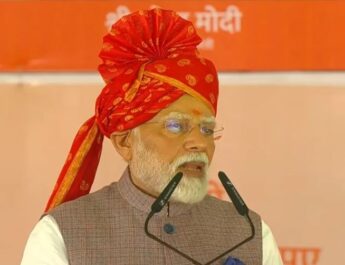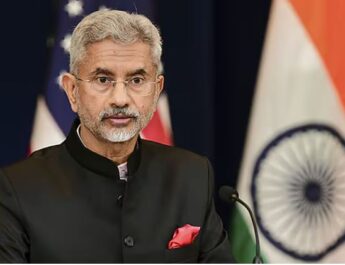Modi In America
New Delhi: Quad’s leaders have expressed “serious concern” about the situation in the South and East China Seas, without explicitly mentioning China. They have listed specific actions that warrant concern and supported international legal frameworks and dispute resolution verdicts that Beijing has rejected.
In the Wilmington Declaration issued after PM Narendra Modi, President Joe Biden, Australian PM Anthony Albanese, and Japanese PM Fumio Kishida met on Saturday in Biden’s hometown, the Quad expressed concern over the “militarization” of disputed features and the “coercive and intimidating maneuvers” in the South China Sea.
A comparison of the Wilmington and Hiroshima declarations, issued in May 2023 when the same set of four leaders last met, reveals that the section on developments in the maritime space in the South and East China seas is more elaborate and blunt. The four countries also laid out their positions on Ukraine, calling for peace and respect for sovereignty and territorial integrity. For the first time at the leaders’ level, they extensively dealt with the situation in West Asia, calling for an immediate hostage deal, ceasefire, and a two-state solution.
Commenting on the geopolitical highlights of the Quad declaration, Dhruva Jaishankar, executive director of the Observer Research Foundation-America, said, “The Quad joint statement was, as usual, detailed but contained stronger language than in the past on condemning the use of force in the Indo-Pacific. It also contained some broad agreement on strategic developments, such as in Gaza, Yemen, Myanmar, and even Ukraine.”
In the context of China’s aggression against the Philippines, particularly in the maritime space, the Quad condemned “the dangerous use of coast guard and maritime militia vessels, including increasing use of dangerous maneuvers.” The Quad opposed efforts to “disrupt other countries’ offshore resource exploitation activities.”
Quad leaders reaffirmed that “maritime disputes must be resolved peacefully” and in accordance with international law, as reflected in the United Nations Convention on the Law of the Sea (UNCLOS), a framework that China has consistently rejected and violated. Quad leaders re-emphasized “the universal and unified character of UNCLOS” and reaffirmed that UNCLOS sets out the legal framework “within which all activities in the oceans and the seas must be carried out.”
The Quad also underscored that the 2016 Arbitral Award on the South China Sea—a decision that favored the Philippines over China and was not accepted by China—is a “significant milestone and the basis for peacefully resolving disputes between the parties.”
On Ukraine
On Ukraine, the Quad took a similar position but with some significant nuanced differences in its declaration on Saturday. The fact that PM Narendra Modi visited Kyiv was mentioned in the declaration.
Reiterating that the Quad stood for “principles of the UN Charter, including territorial integrity, sovereignty of all states, and peaceful resolution of disputes”—a position it has consistently taken—the text went on to say, “We express our deepest concern over the war raging in Ukraine, including the terrible and tragic humanitarian consequences. Each of us has visited Ukraine since the war began and seen this first-hand; we reiterate the need for a comprehensive, just, and lasting peace in line with international law, consistent with the purposes and principles of the UN Charter, including respect for sovereignty and territorial integrity.”
The Quad countries reiterated the negative impact of the war on global food and energy security, asserted that “the use, or threat of use, of nuclear weapons is unacceptable,” and stated that “all states must refrain from the threat of or use of force against the territorial integrity and sovereignty or political independence of any state.”
On Gaza
On Gaza, the significant change from the Hiroshima summit in the summer of 2023 is the fact that a war has been raging in West Asia for almost a year. This was strongly reflected in the Quad’s Wilmington Declaration. The group of four democracies said they shared a great interest in achieving peace and stability in the region. The Quad “unequivocally” condemned the October 7 terror attacks but also stated that the “large-scale loss of civilian lives and the humanitarian crisis in Gaza” was unacceptable.




